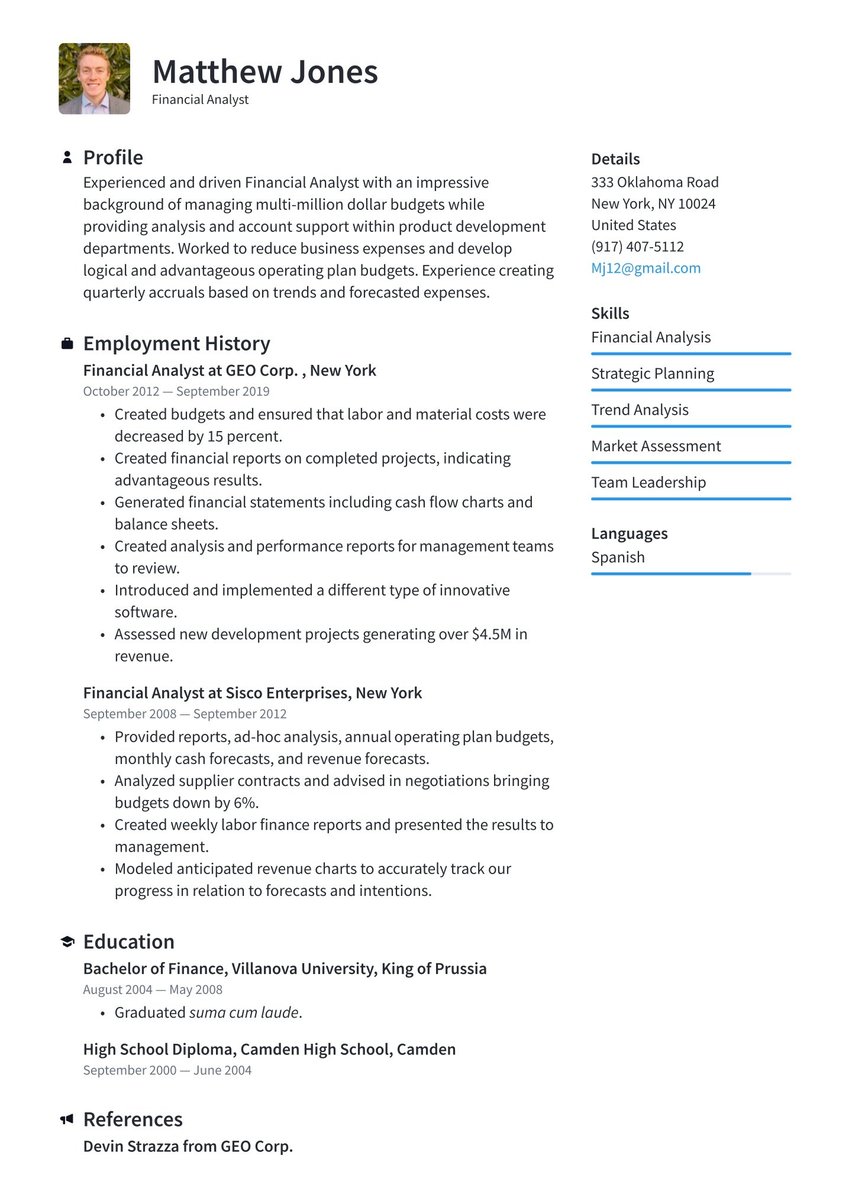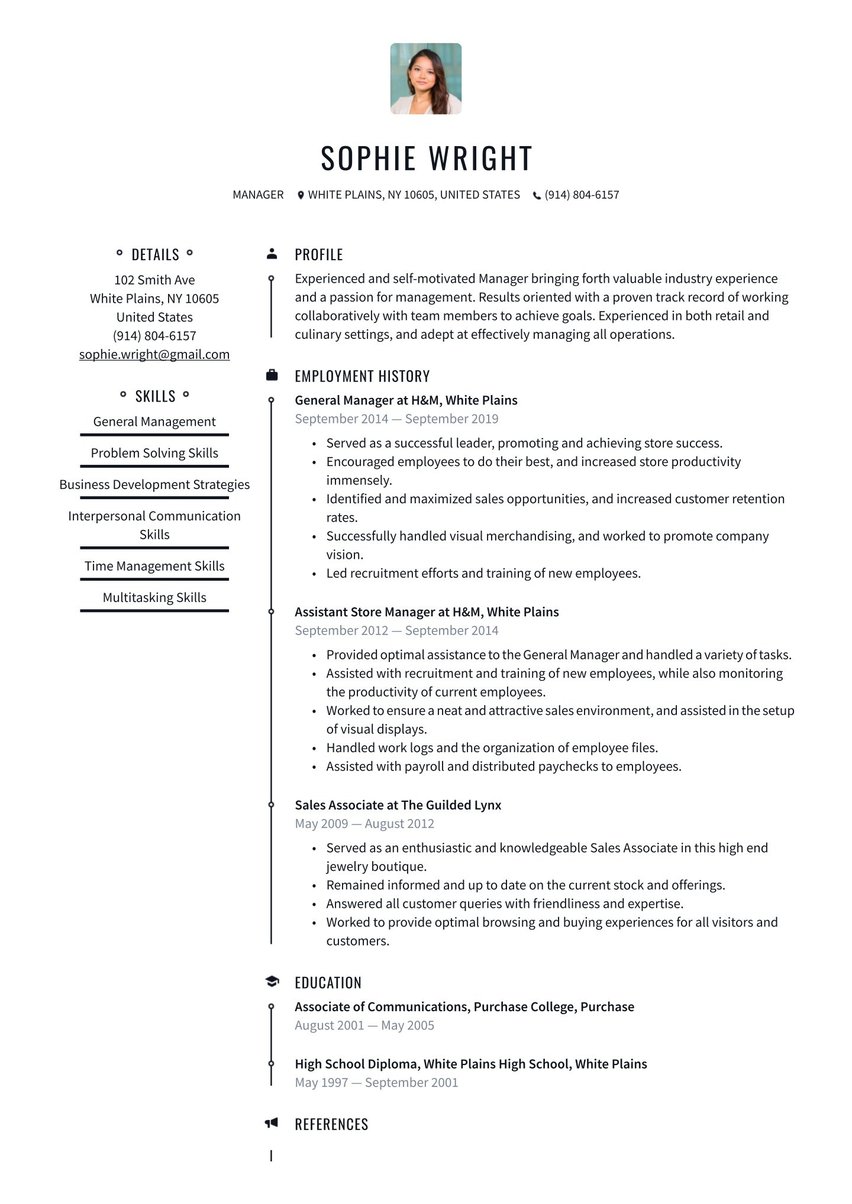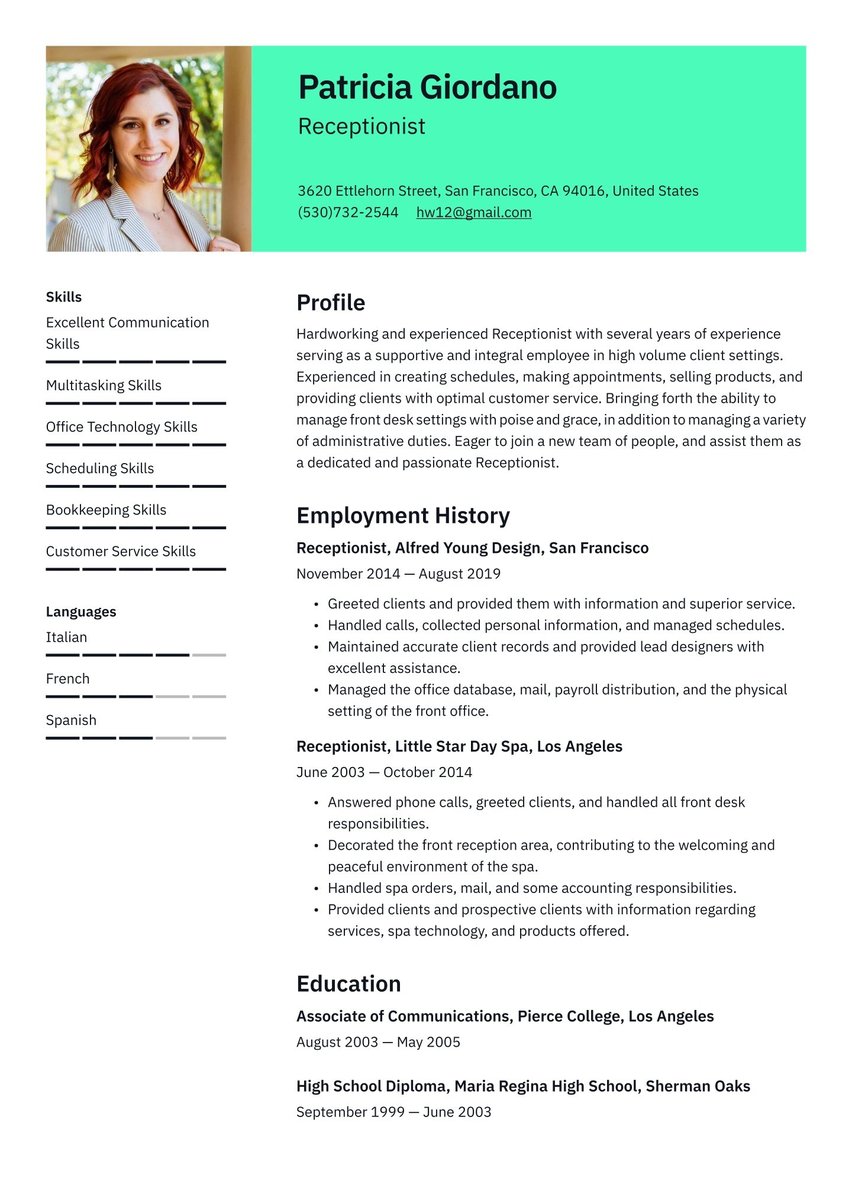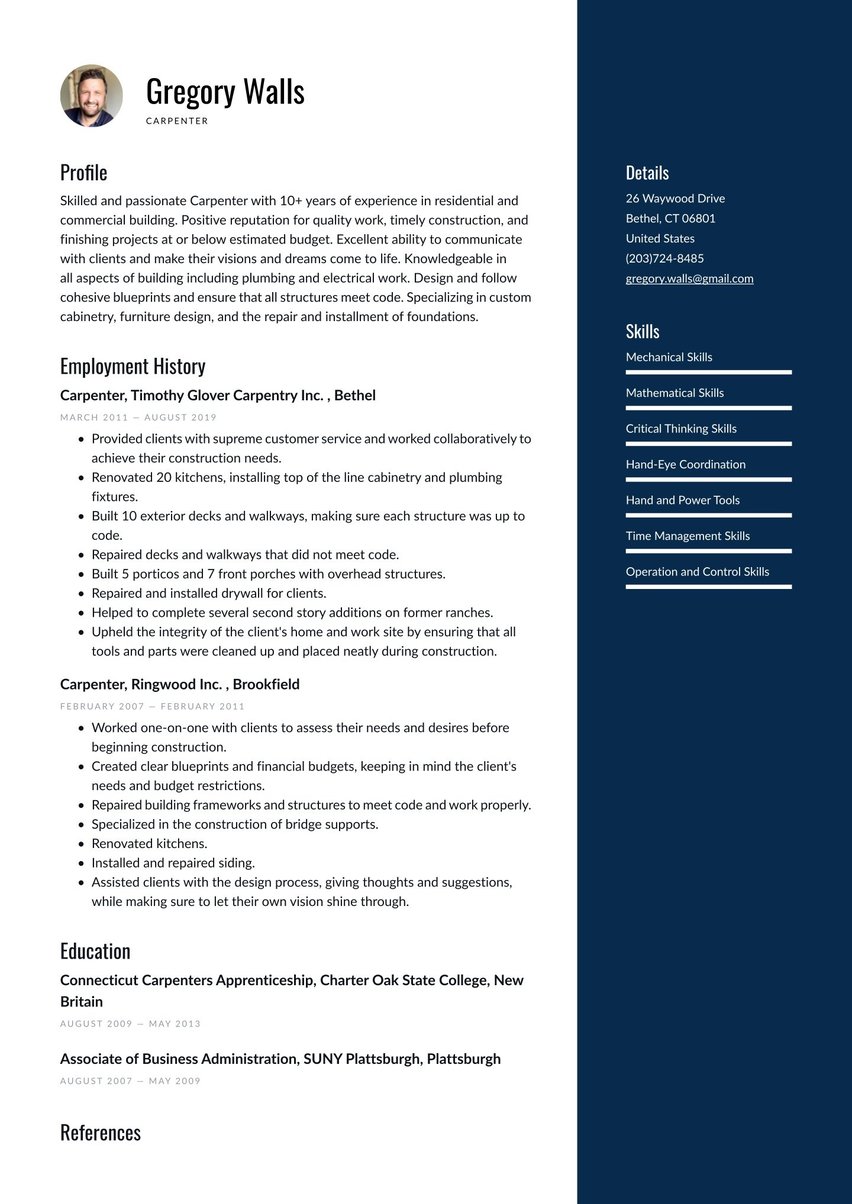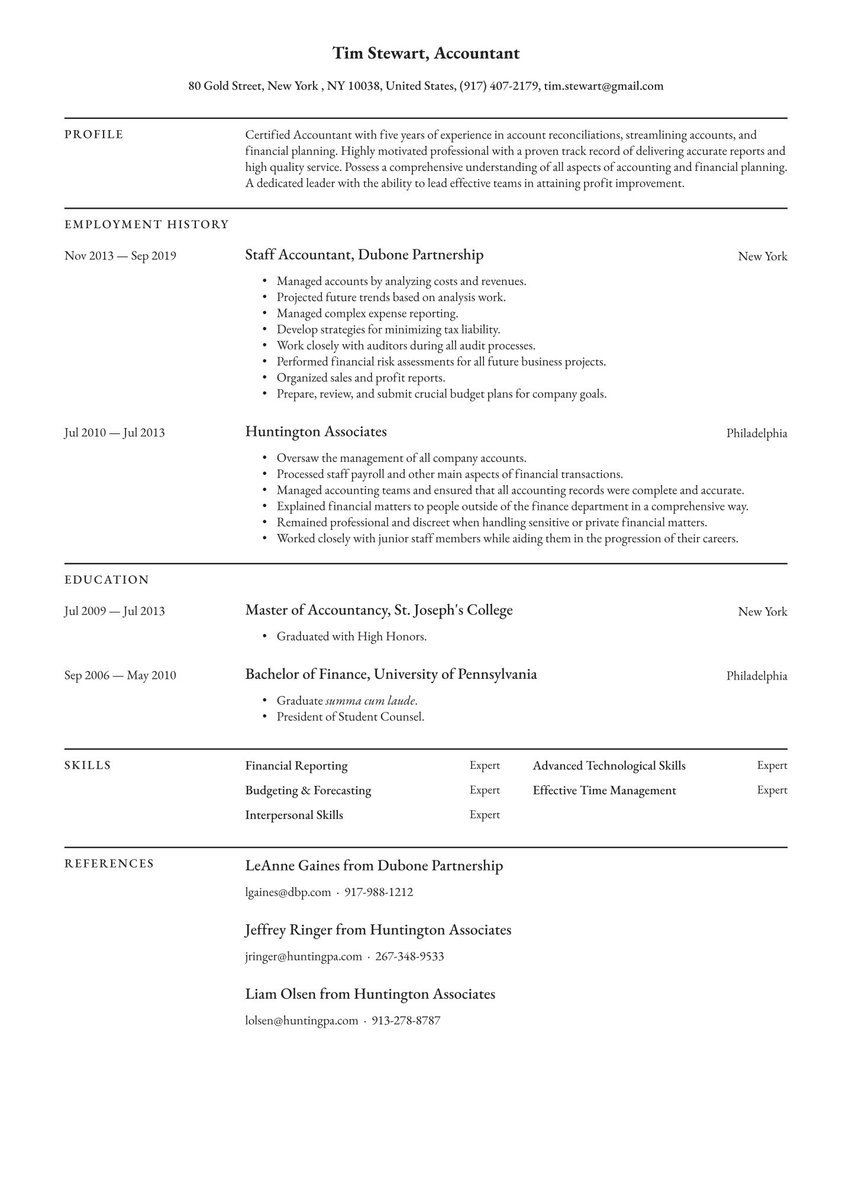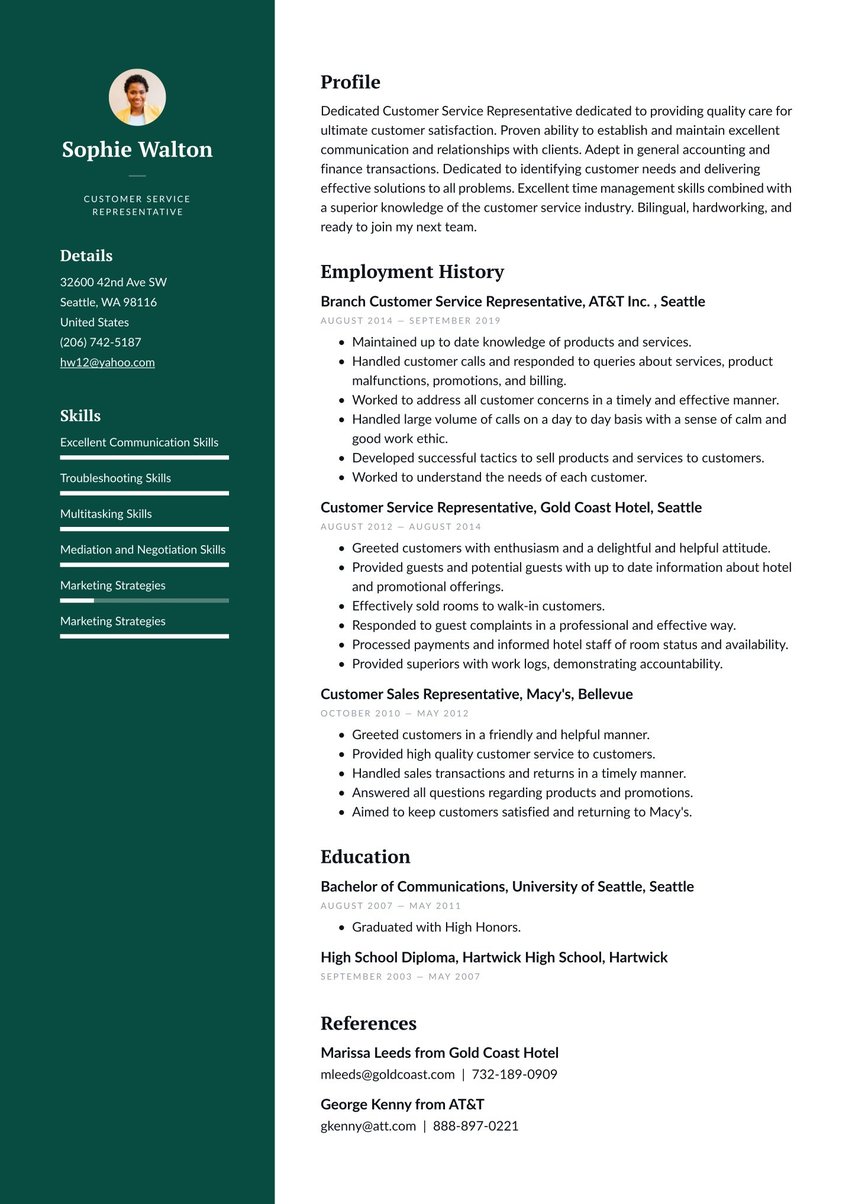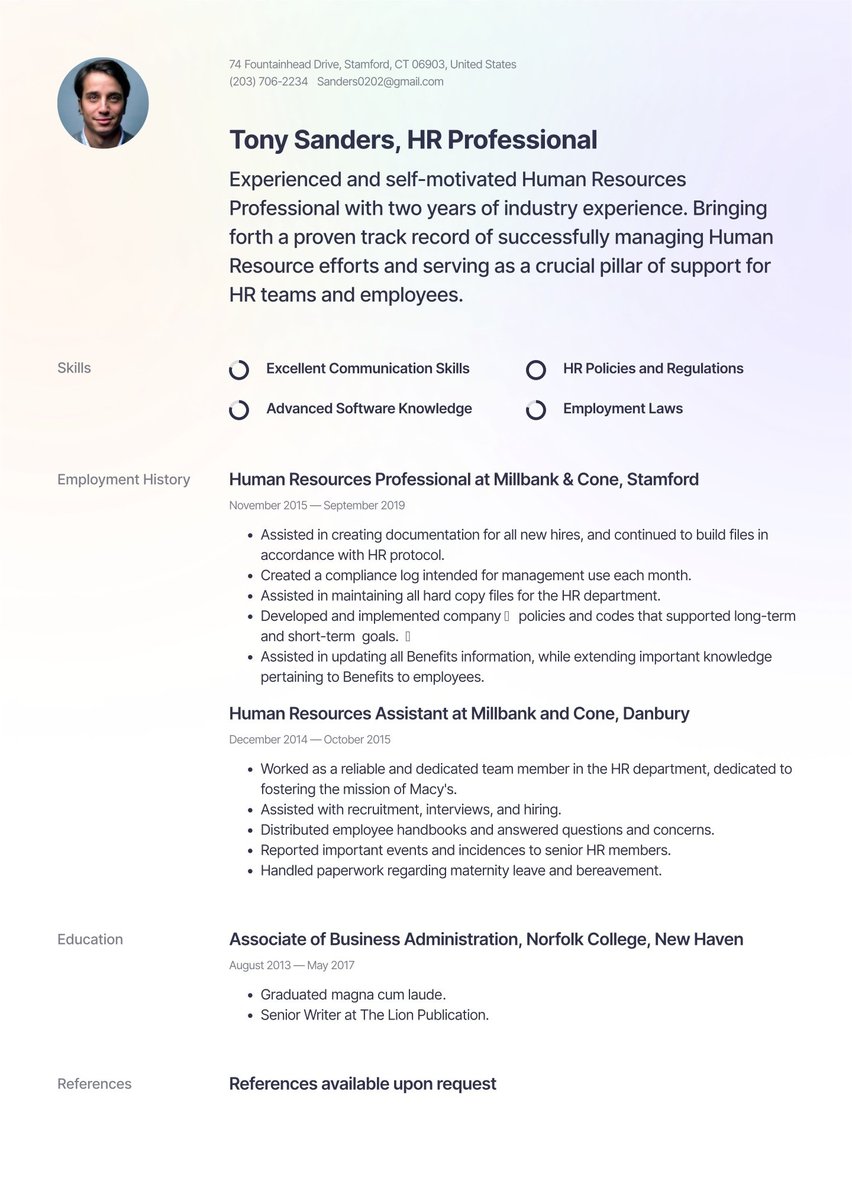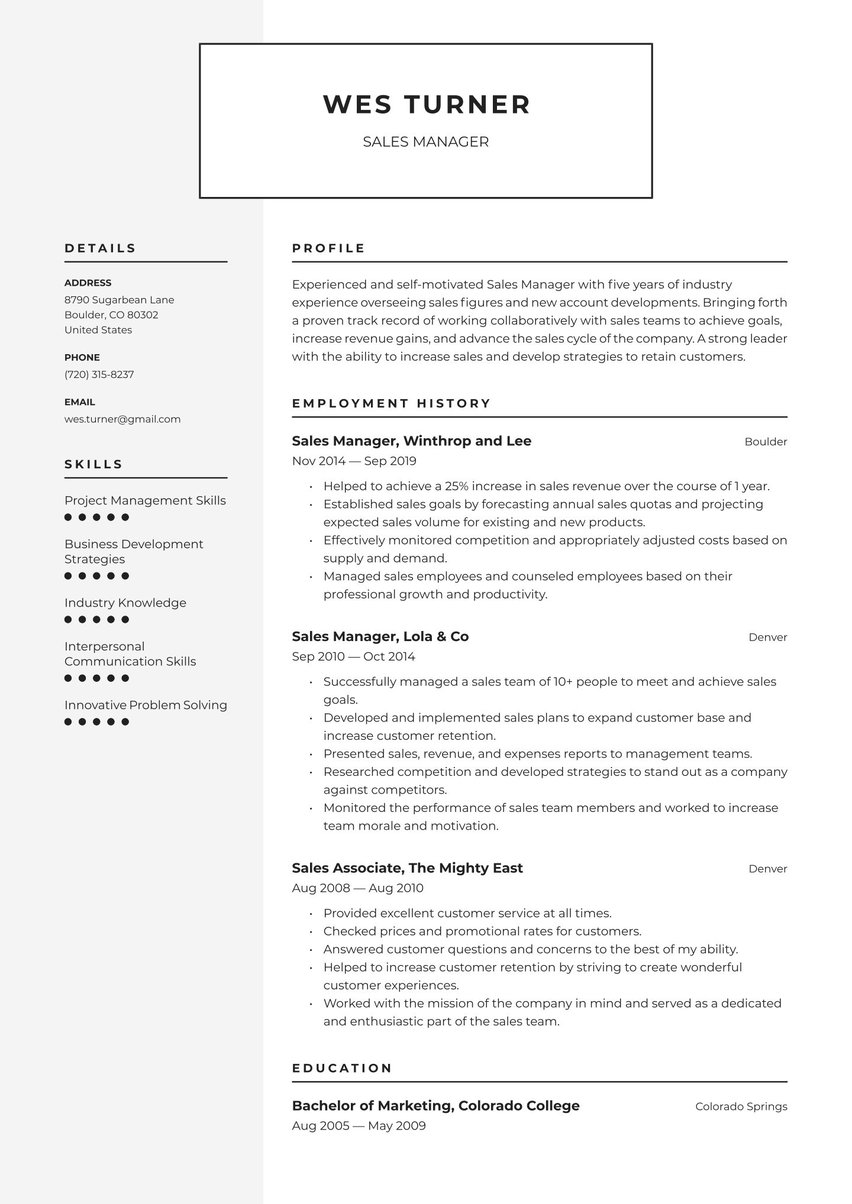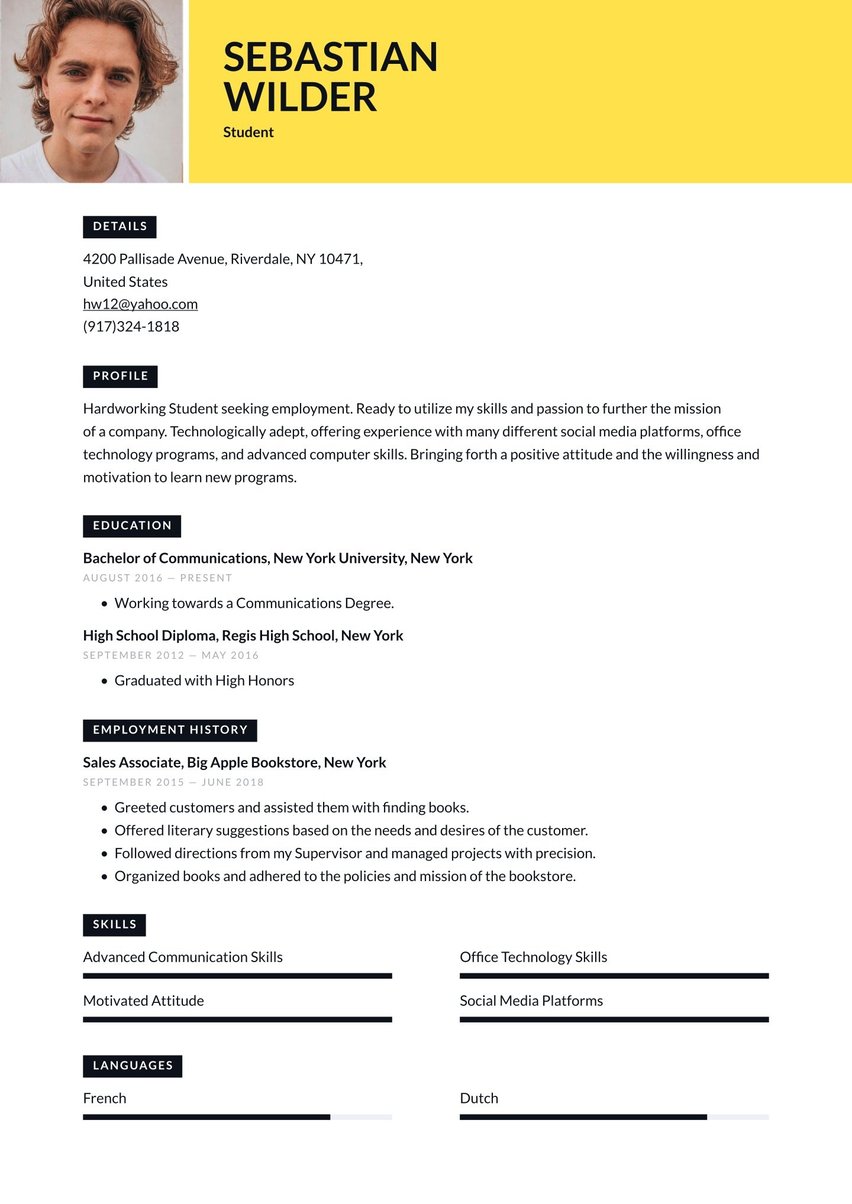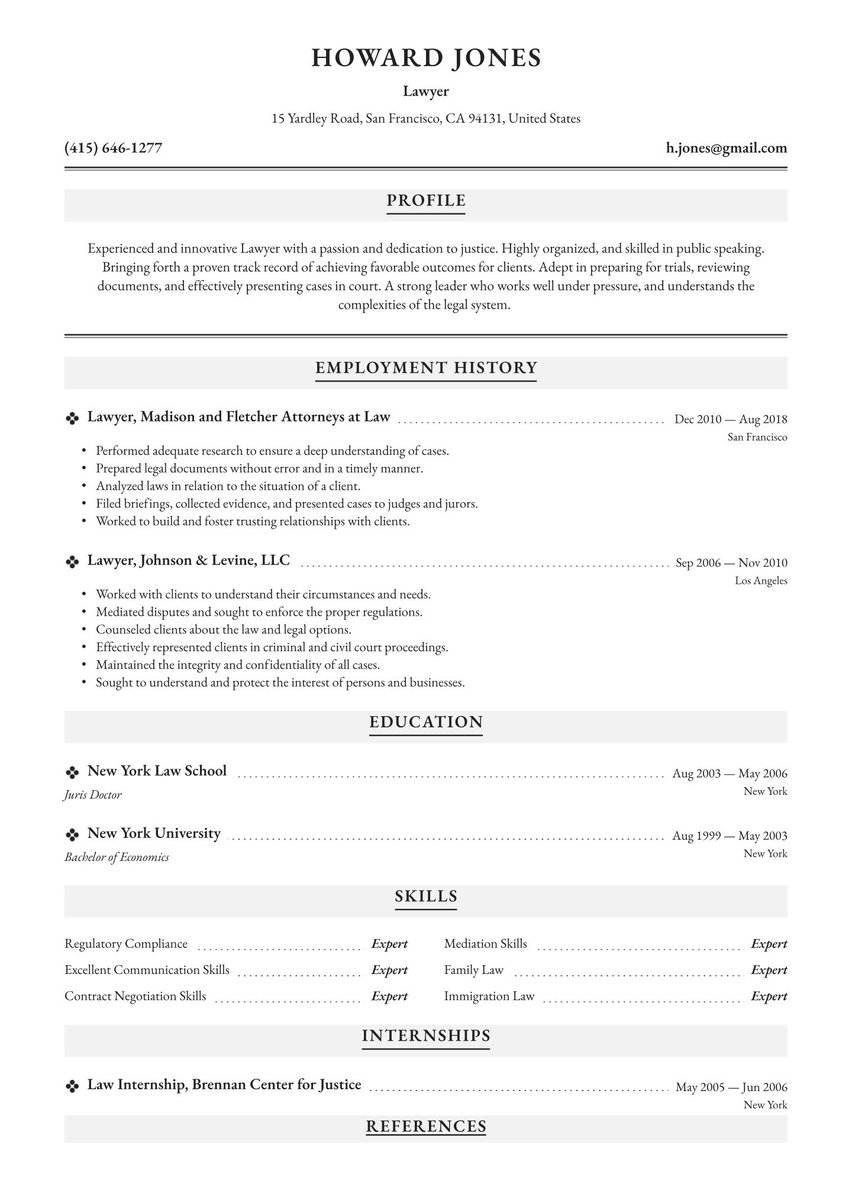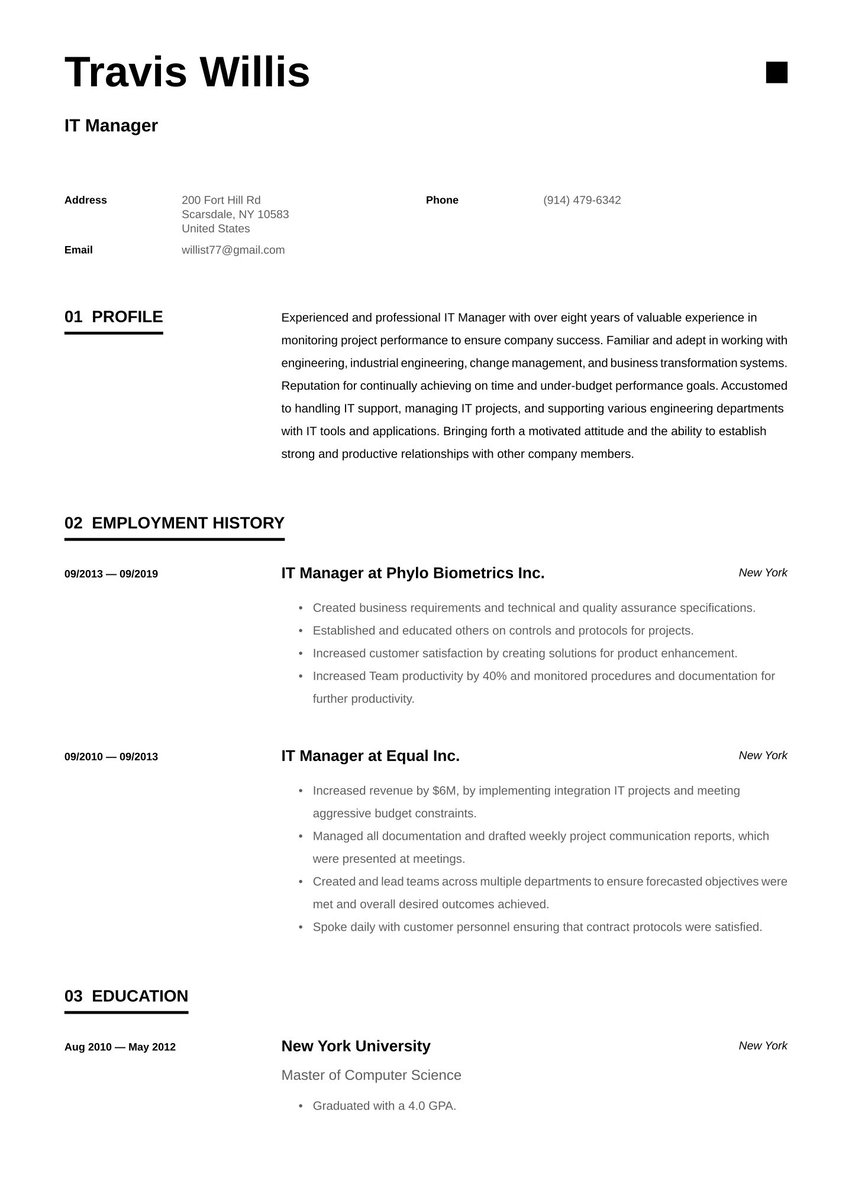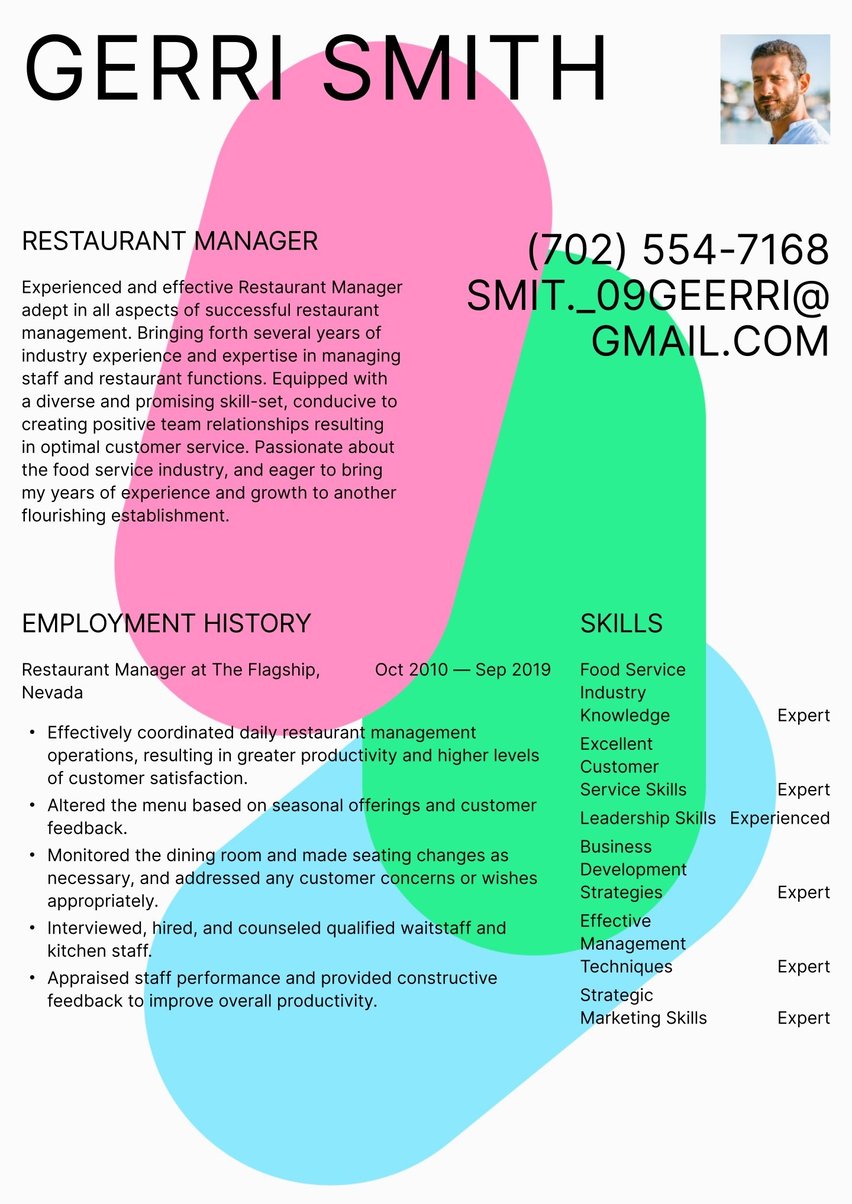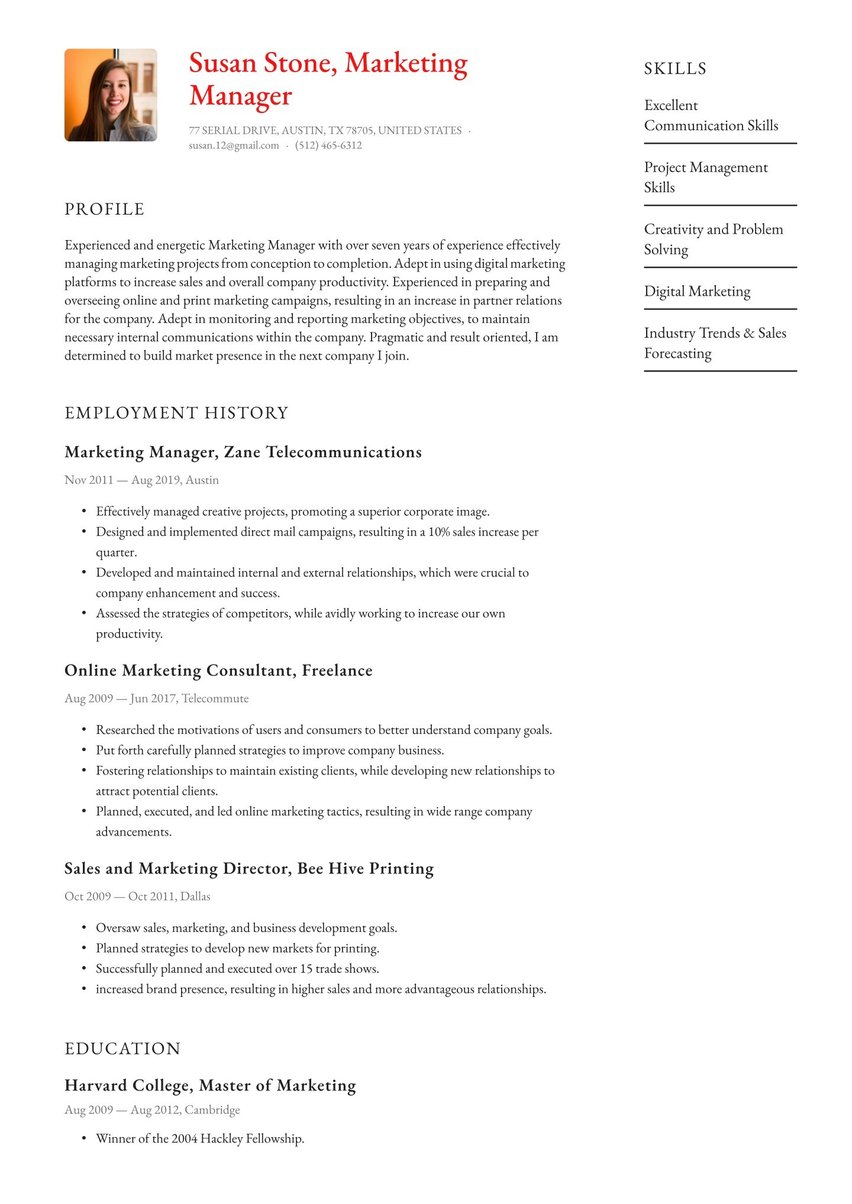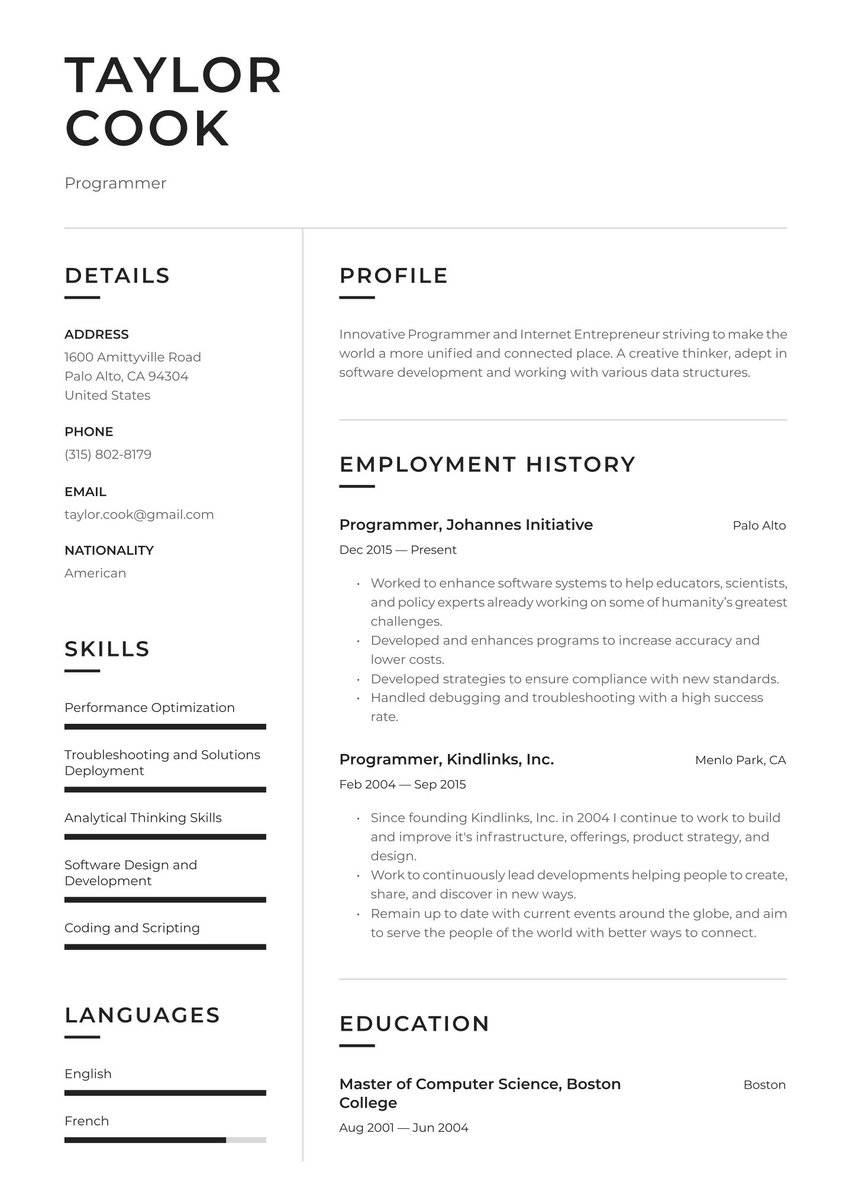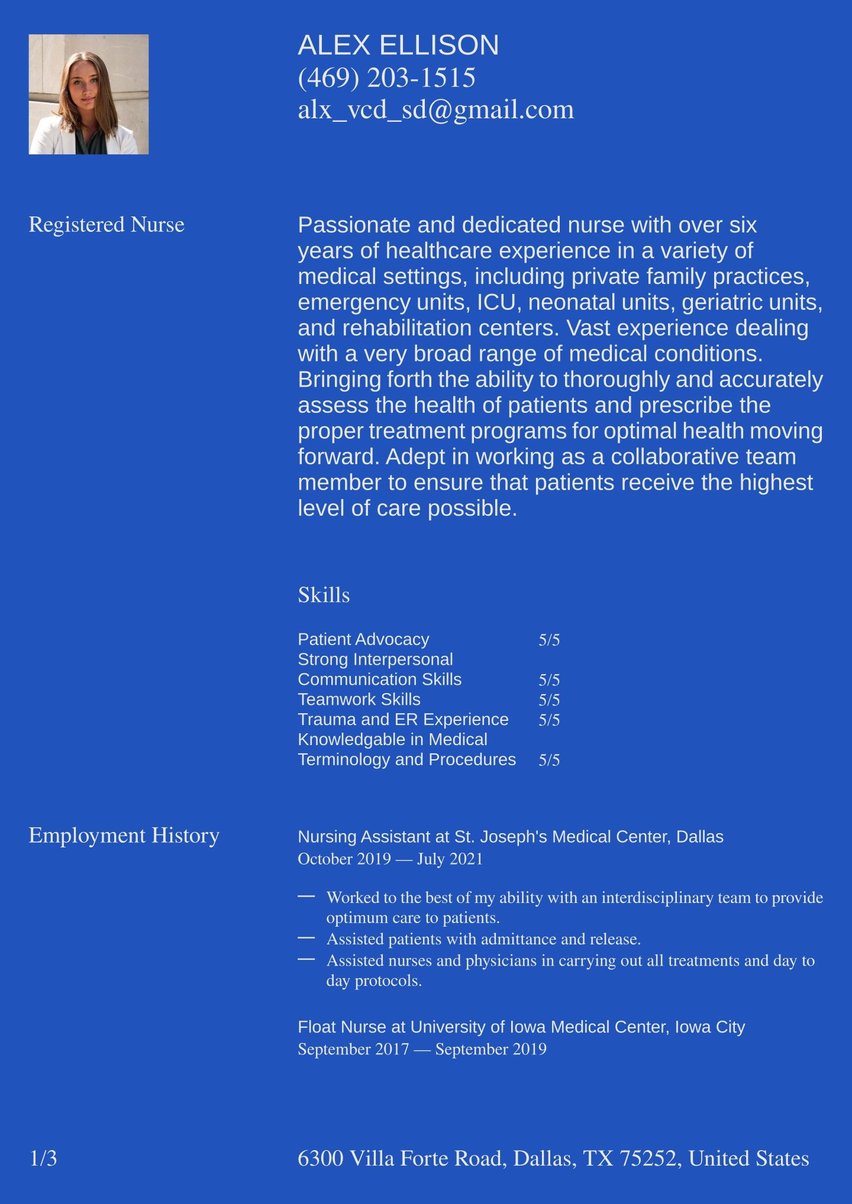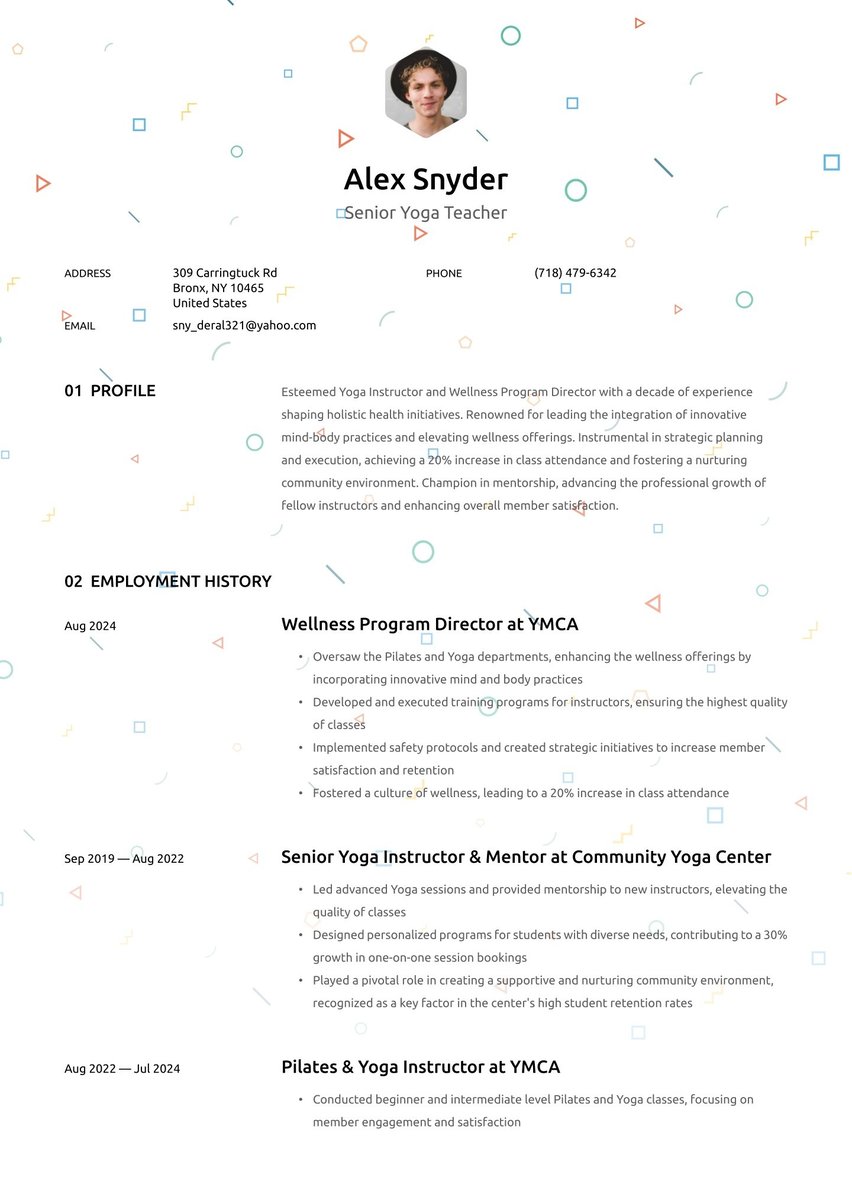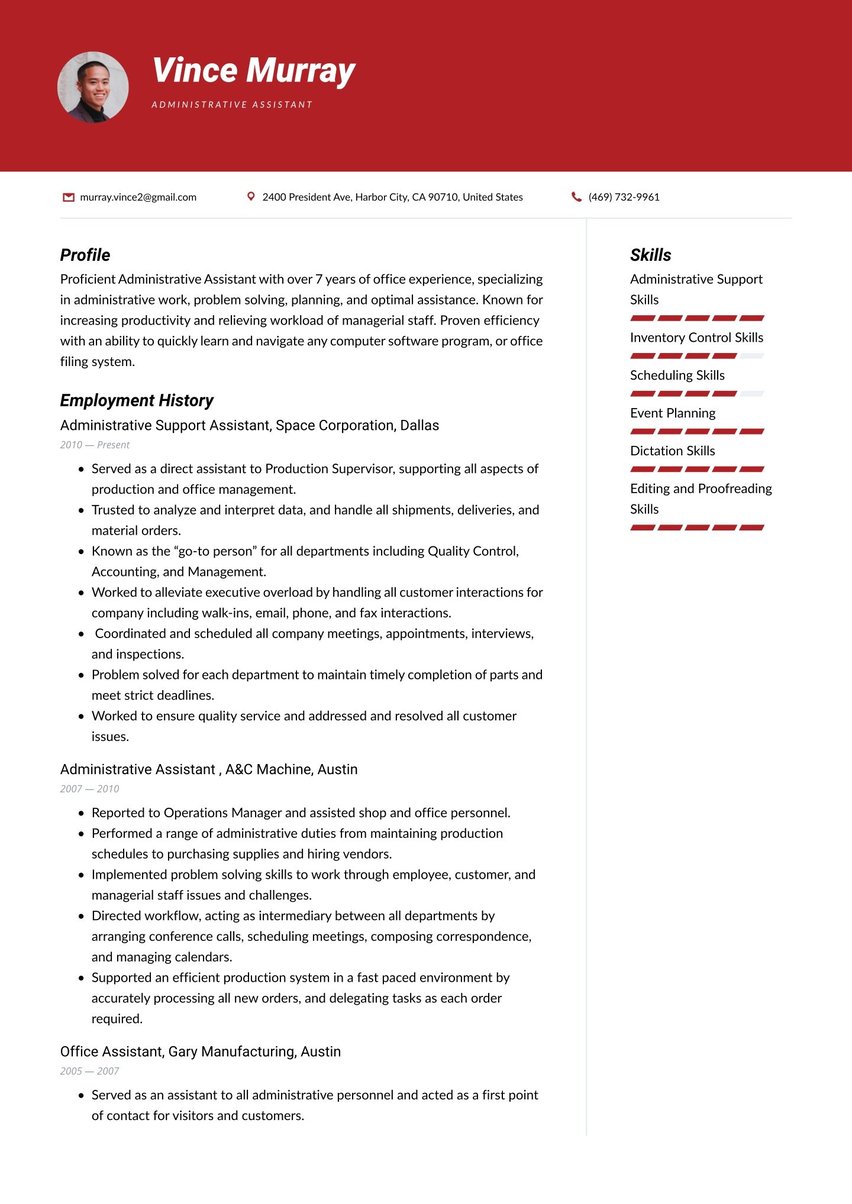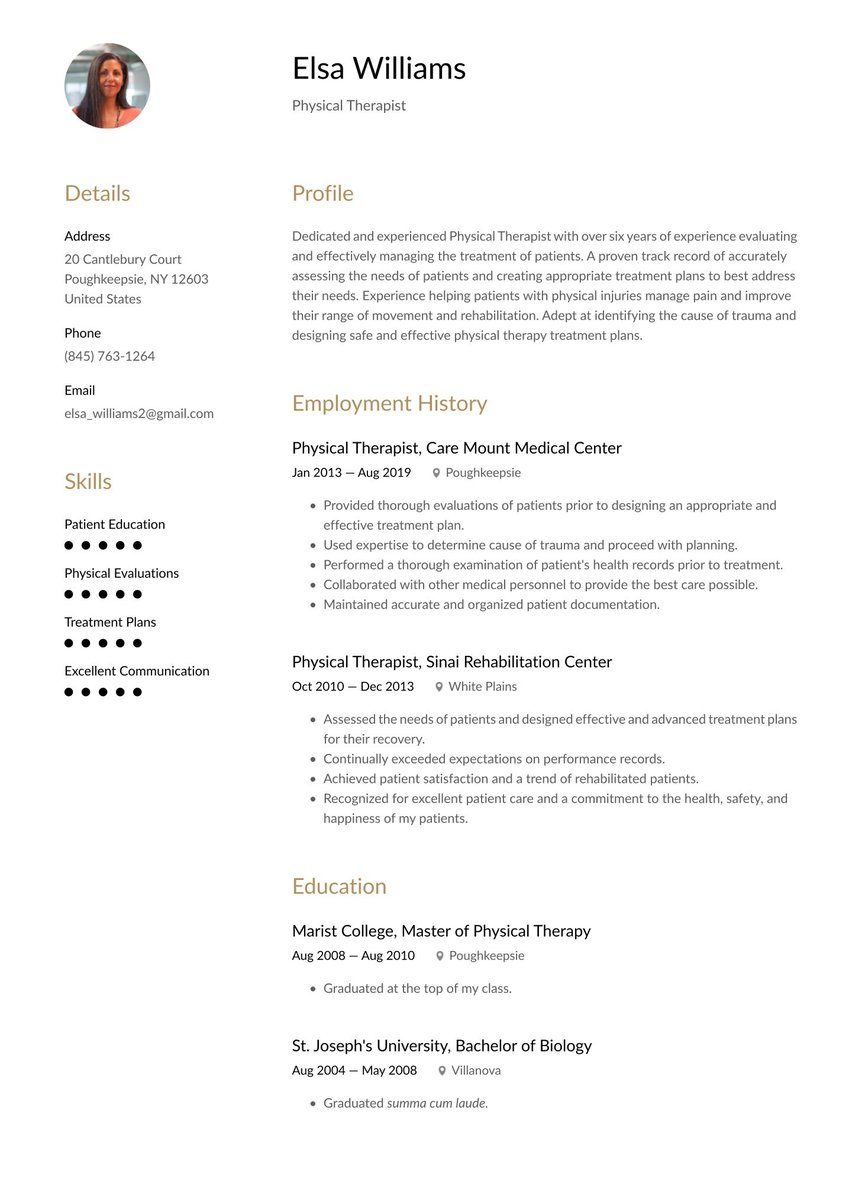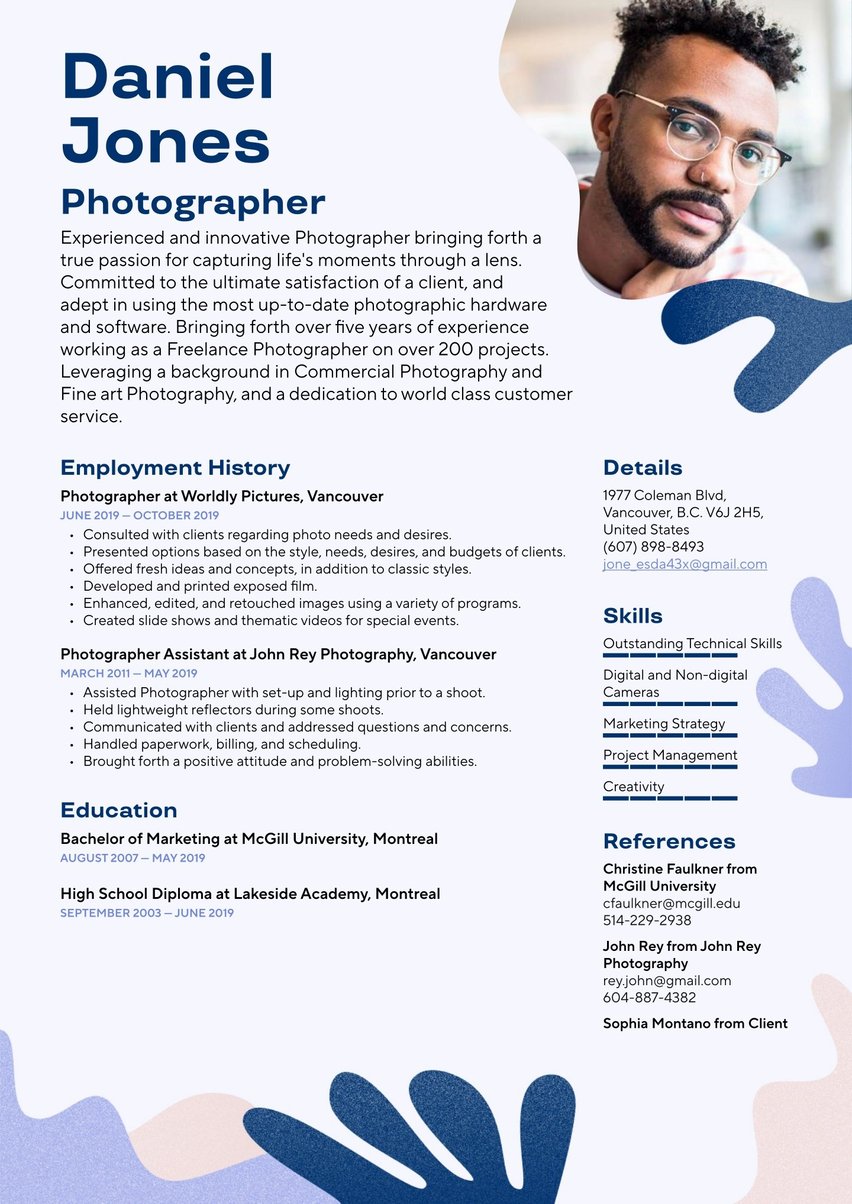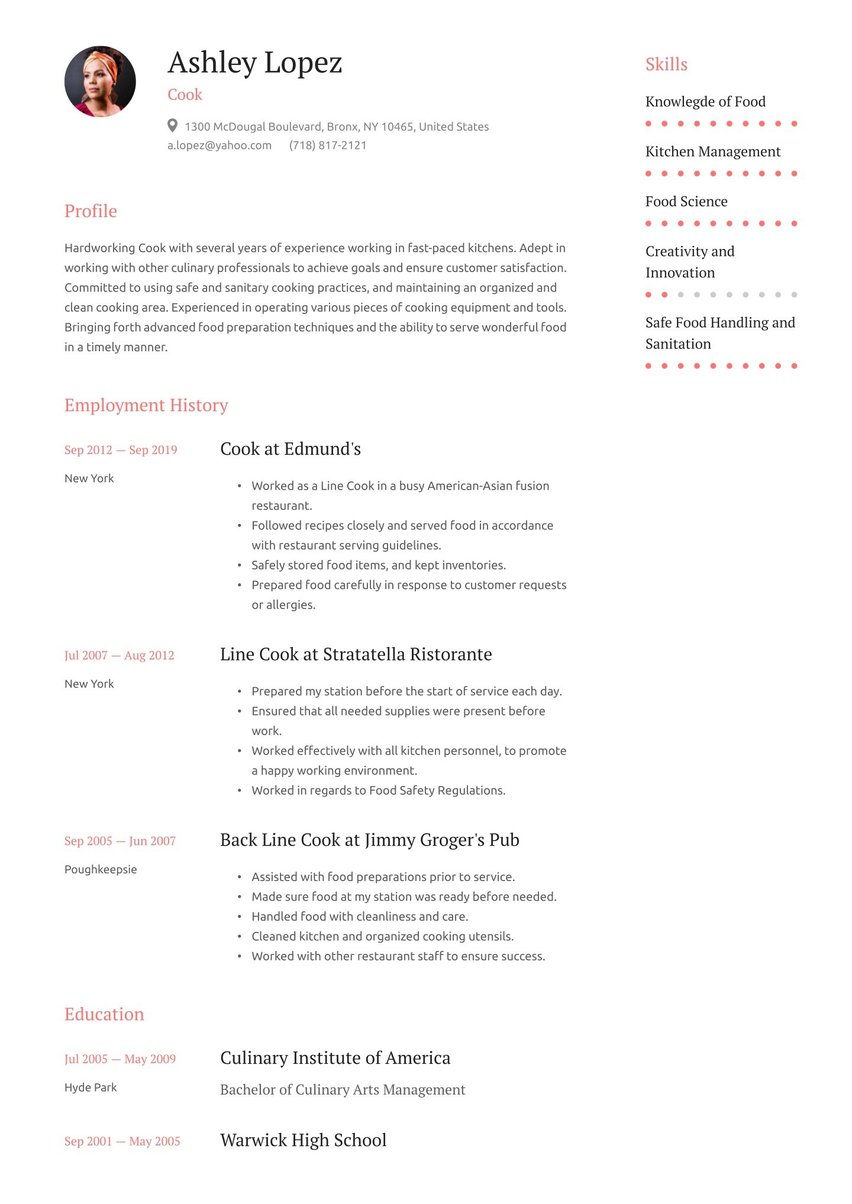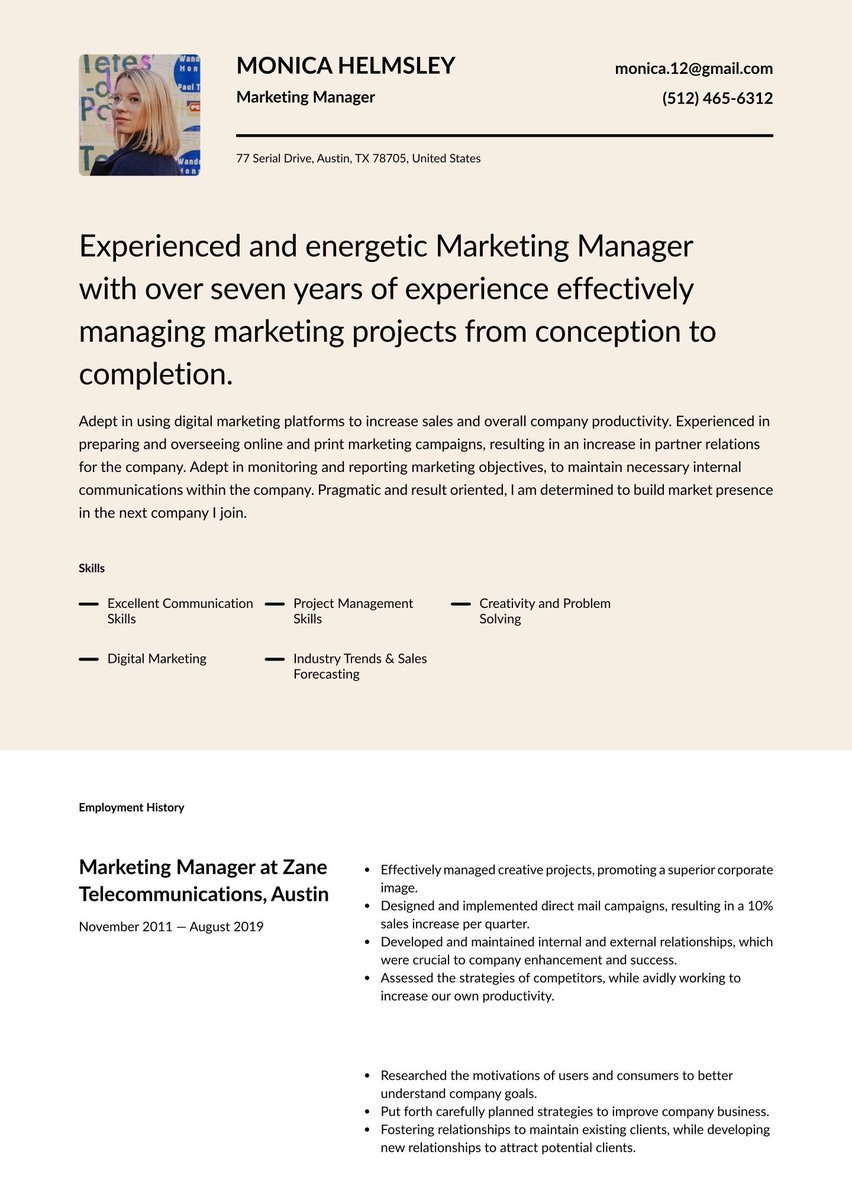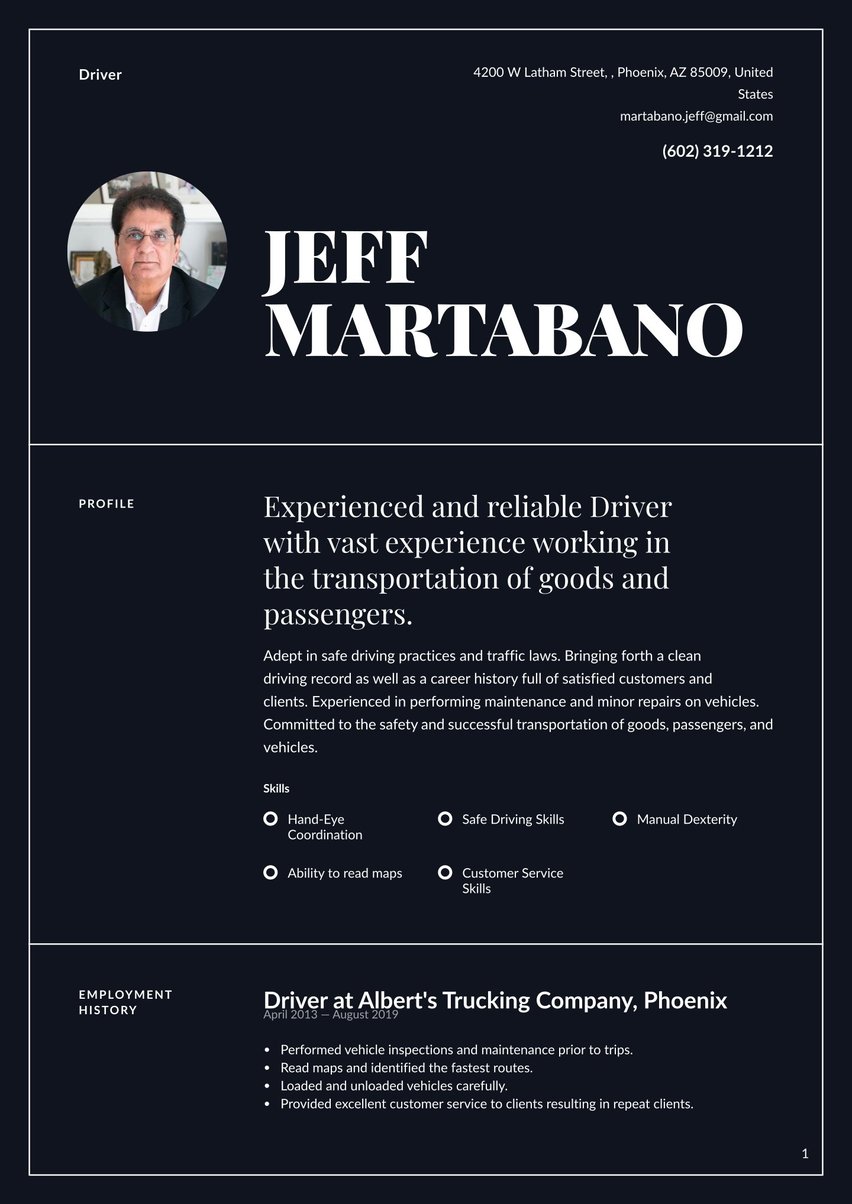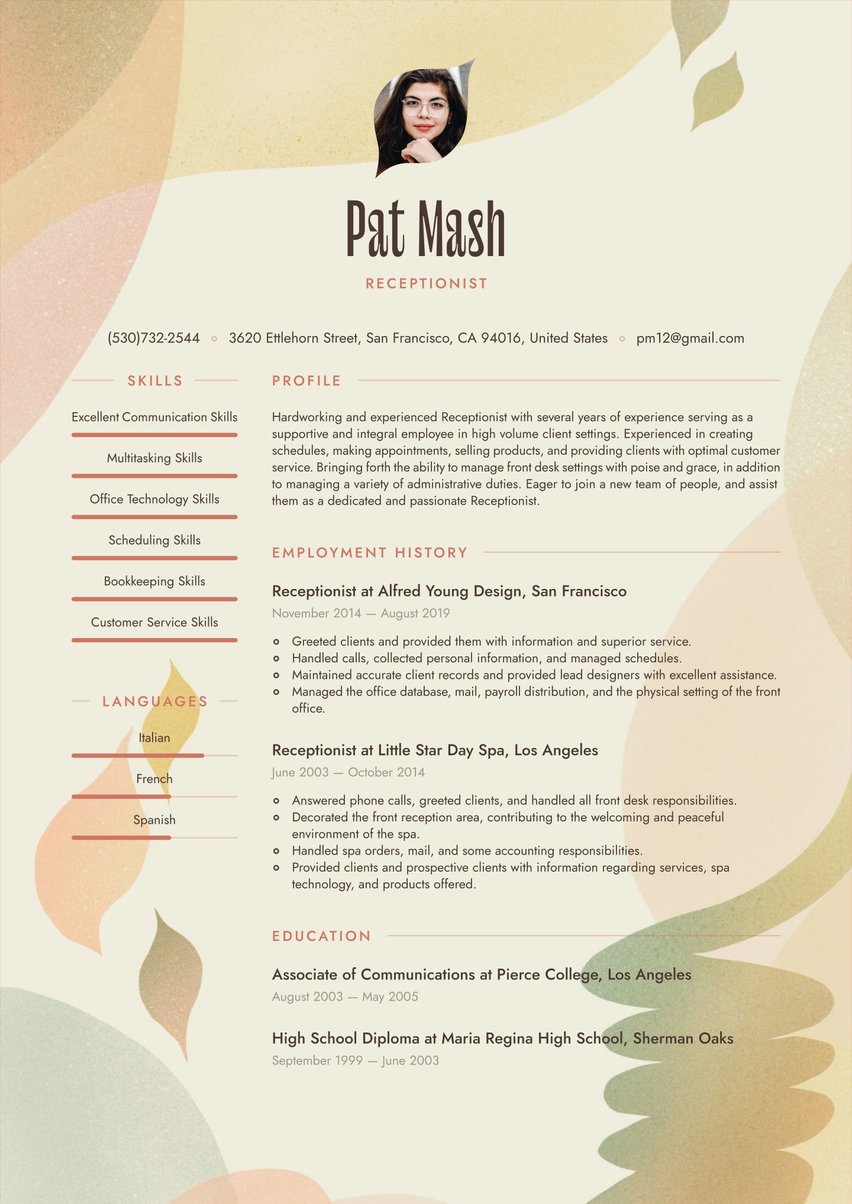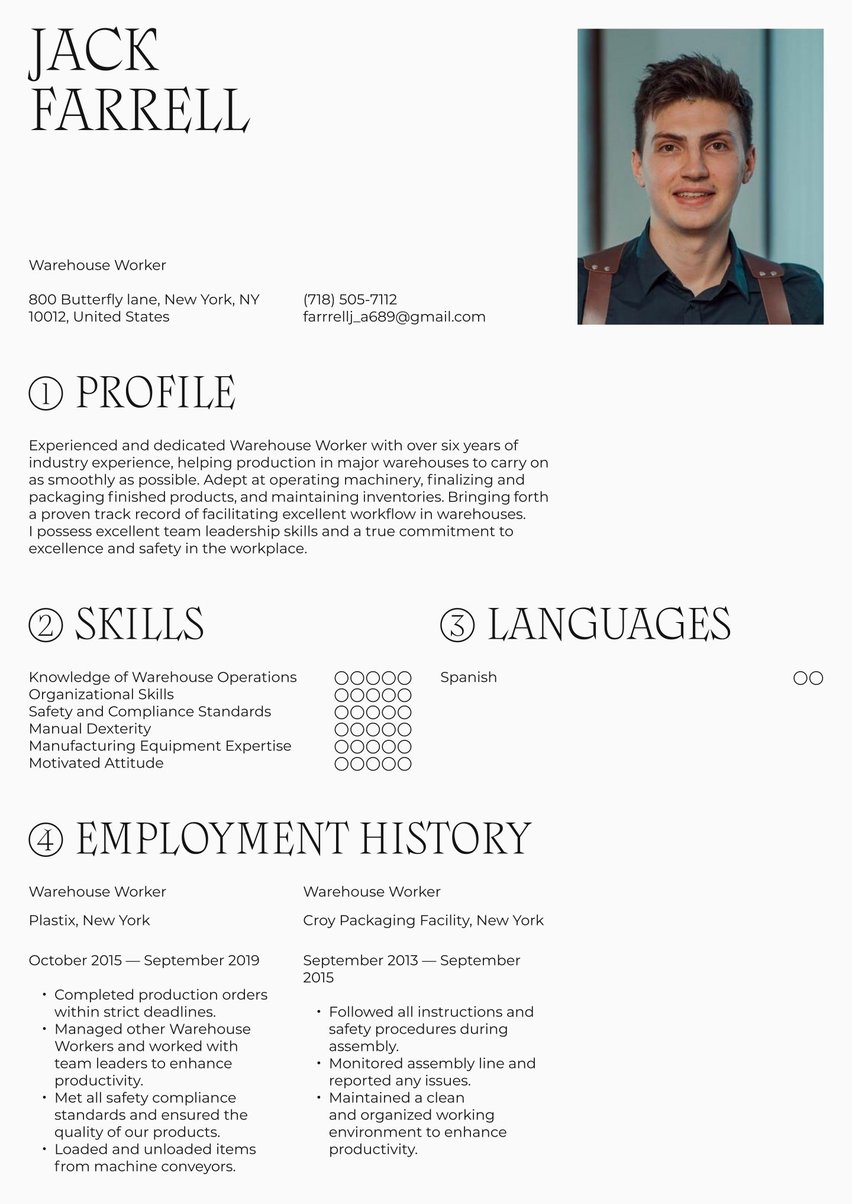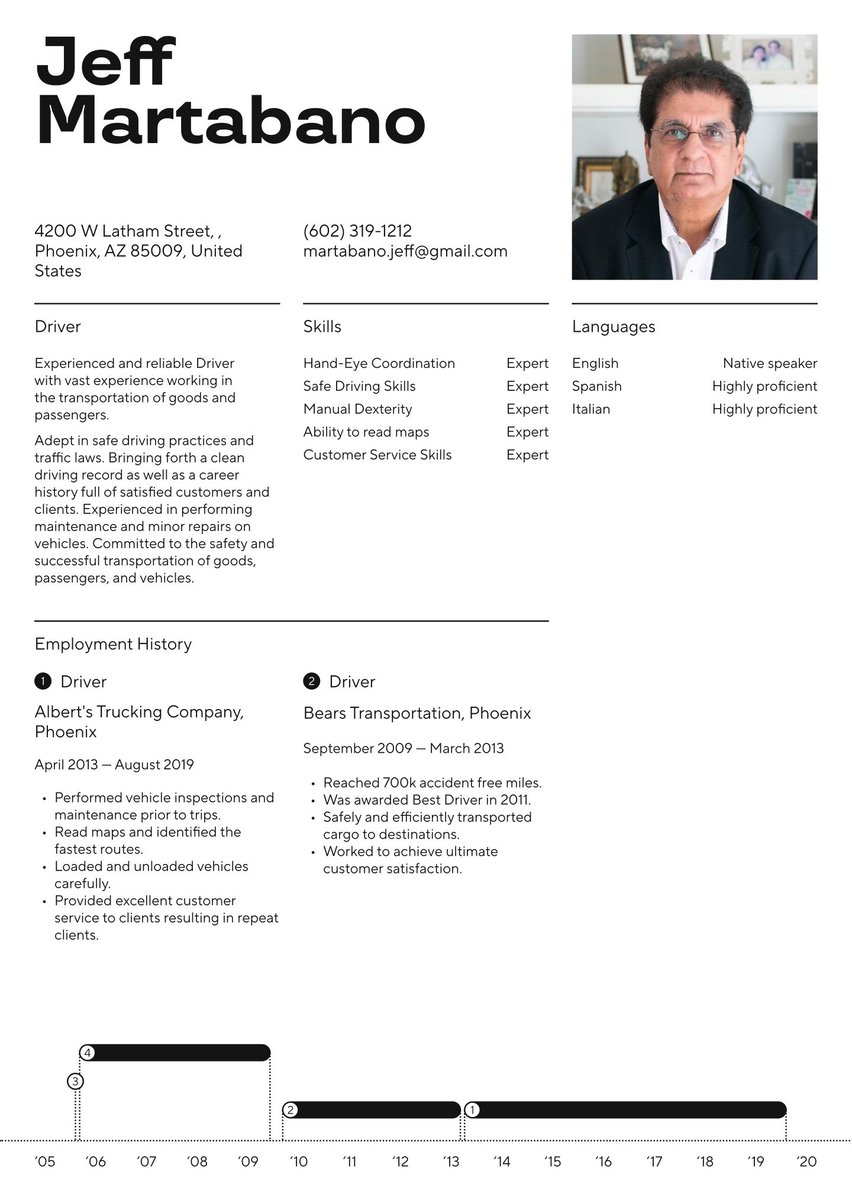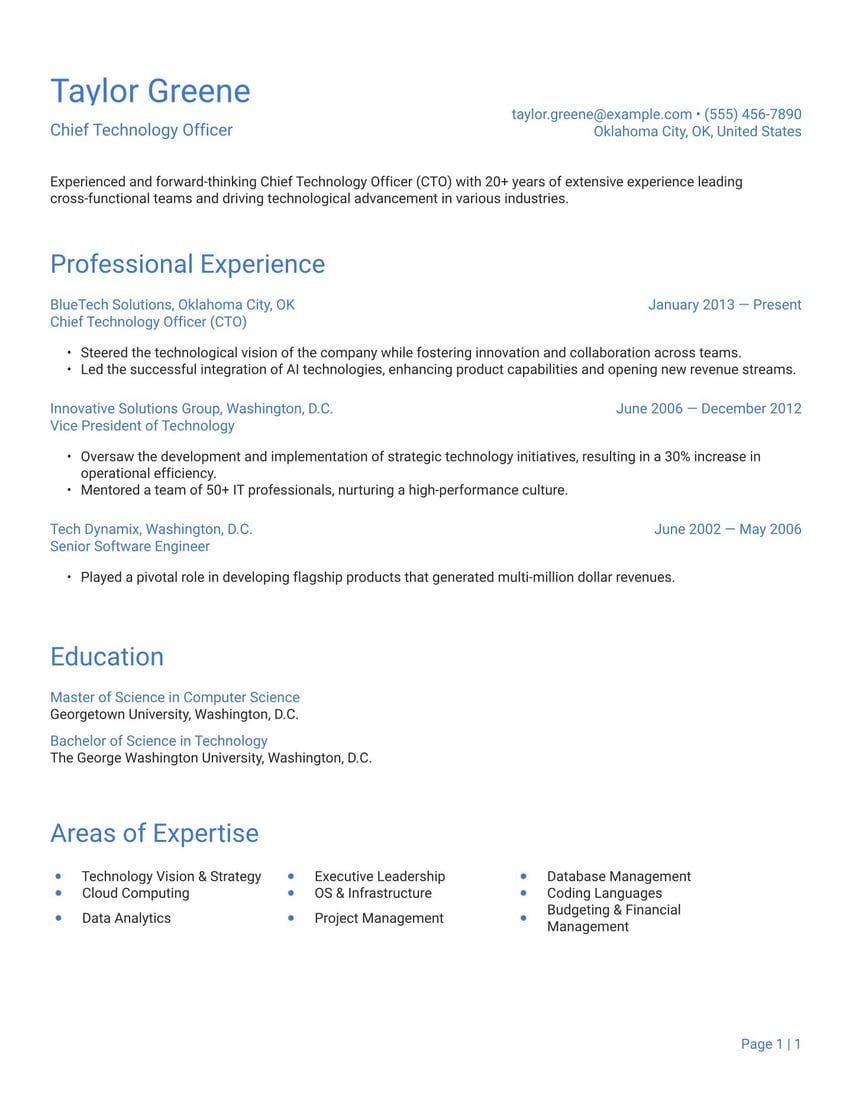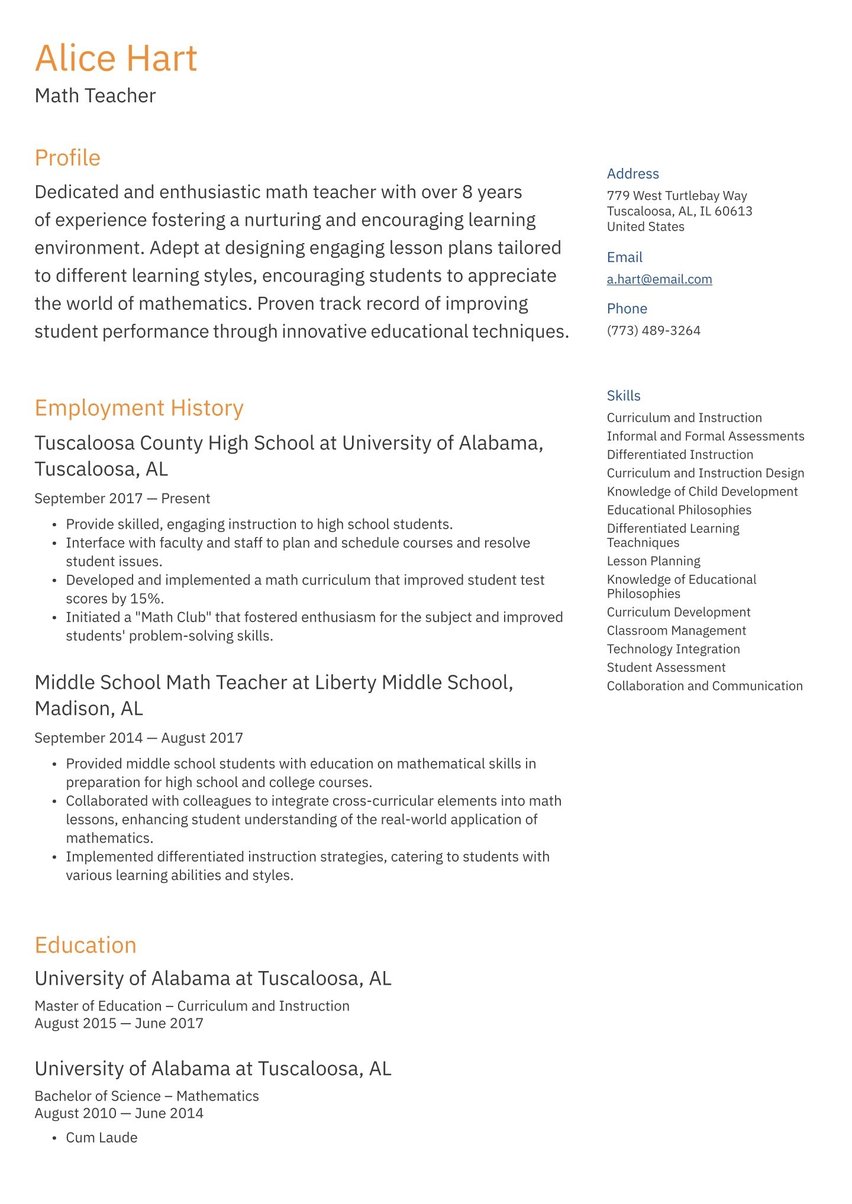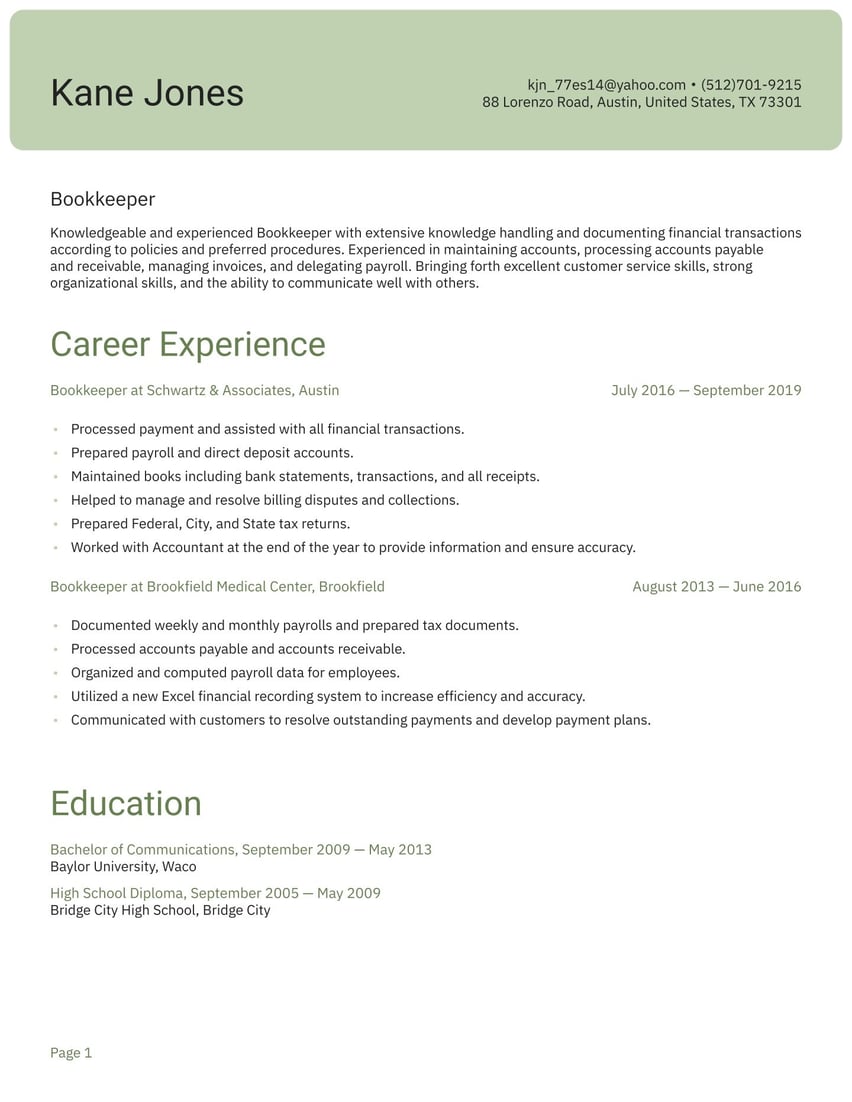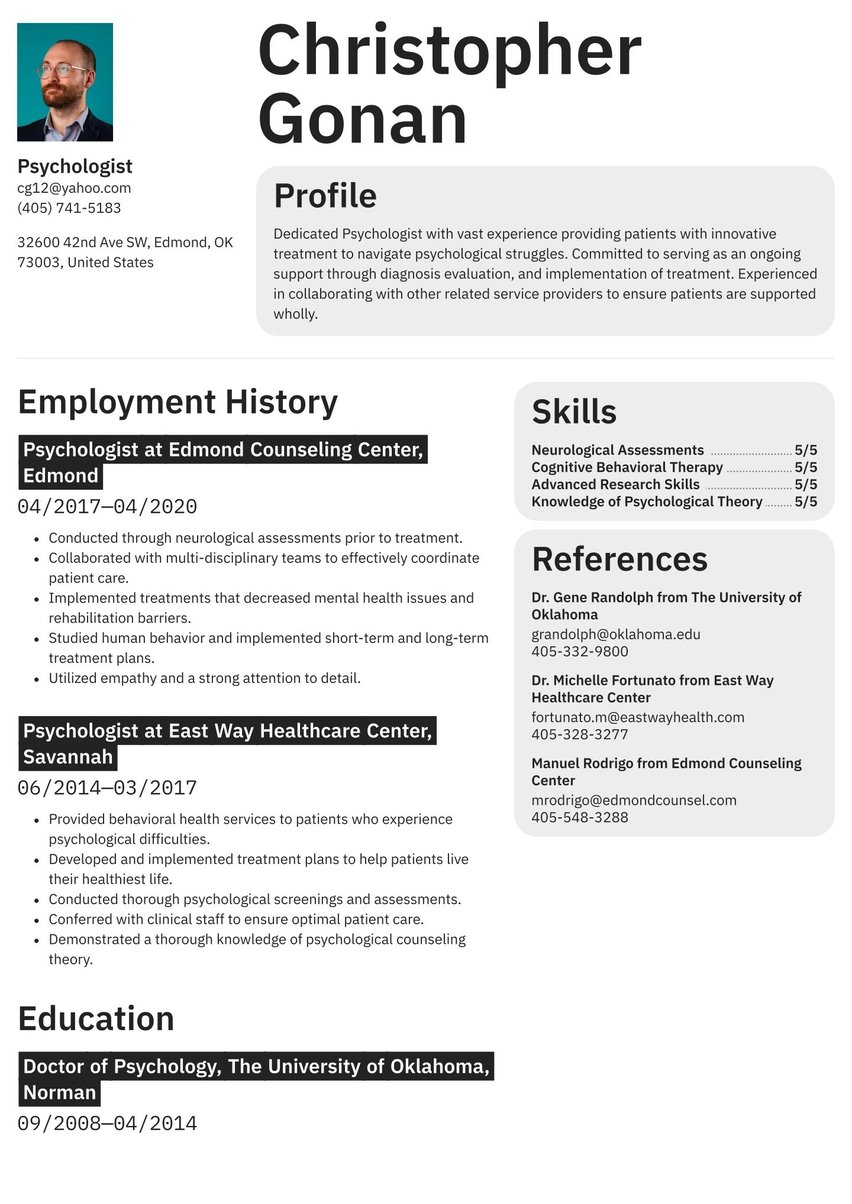Software developers know the ins and outs of code and systems, but the right tricks to land that dream job can still feel elusive.
While it’s important to show that you know coding languages and methodologies, you’ve also got to show off your ability to work on a team, understand the user’s needs, and see projects through to the end.
Of course, these exact skills are those that will help you write an impactful, compelling full-stack developer resume.
Resume guide for a full-stack developer resume
While there seem to be jobs aplenty for full-stack developers, you don’t want just any job—you want the right job. A great resume will help you get there.
Leave it to the experts at resume.io. We have turned our knowledge into 500+ resume guides and resume examples, plus expertly designed resume templates and an easy-to-use resume builder.
This resume guide and corresponding full-stack developer resume example will cover the following:
- How to write a full-stack developer resume
- The best format for a full-stack developer resume
- How to add your contact information
- Using summaries to sell your skills
- Adding your full-stack developer experience
- Listing education and relevant certifications
- Professional resume layout and design hints
- What the full-stack developer market looks like and what salary you can expect
How to write a full-stack developer resume
Structure is imperative when it comes to your resume. Use the following sections in your full-stack developer resume to boost your impact:
- The resume header
- The resume summary (aka profile or personal statement)
- The employment history section
- The resume skills section
- The education section
Do enough research on your prospective employer so you can match the tone of your resume with the company's culture and image. Your resume is a document to market your skill set and experience, so be sure to tailor it accordingly and create a persuasive narrative. In other words, show off your unique value.
Highlight accomplishments instead of job duties. Most people reading a software developer resume will have an idea of what the job entails. You want to take it a step further by showcasing your unique impacts and achievements.
Make sure you select a resume template that’s polished and clear without being too formal. Remember to include relevant keywords to appeal to both recruiters and ATS screening software.
The ATS algorithms
We don’t have to tell you how algorithms work, but we do want to remind you to think of applicant tracking systems when applying for jobs. This type of software helps companies manage applications, but some advanced systems include algorithms that help filter and rank resumes against the job posting. To give yourself the best shot at success, match the keywords and phrases mentioned in the job listing to your targeted resume.
For example, a full-stack developer job posting might list the following:
- “Full stack experience”
- “10+ years of experience”
- “Knowledge of Java”
- “Software development life cycle”
Your resume’s summary, when integrating the keywords, could include a line like:
“Full stack developer with over 10 years of Java experience throughout the software development life cycle.”
To learn more about conquering the ATS, check out our article on ATS optimization.
Choosing the right resume format for a full-stack developer
Typically, the best resume format for most professions is reverse chronological. This format, which lists your work history in reverse chronological order, makes it easiest for the reader to know where to find the information they seek.
That said, highly technical individuals may choose a format that puts more of the focus on their skill set. For instance, a functional format allows you to expand upon your skills section to detail all your technical expertise. You will, however, lose some space in your employment history section in exchange.
Another option is a hybrid format that blends the two. Ultimately, only you can decide which will best highlight your experience. We provide several resume examples in each format, along with plenty of resume templates.
Design-wise, consider a simple layout that puts the focus on your extensive technical expertise instead of the layout itself.
Include your contact information
Your resume’s header serves as its business card, stating your name and contact information front and center. Make sure your header is presented professionally and simply so it’s easy for the reader to find and understand.
Be sure, too, that you include only the important information:
- Full name & title. List your first and last name and the title of the role you are pursuing.
- Professional email address. Use a simple, clean format like [email protected]. Avoid using a quirky or unprofessional email address.
- Phone number. List a number where you can be readily contacted, with a professional voicemail greeting, and make sure your voicemail box isn’t full.
- Location. List your city and state, but avoid your full street address or zip code. It’s outdated to include them and can also put your private information at risk. If you're willing to relocate, note that here.
- LinkedIn. If your LinkedIn profile is active, relevant, and shows off your technical chops, include it here.
- Portfolio. If you have a website or portfolio that displays your development work, it can help to include it here.
- GitHub. Share a link to your GitHub if you keep it updated with your relevant projects.
Don’t include:
- Date of birth. This isn’t necessary and could potentially open you up to age discrimination.
- Personal details. Leave off your marital status, social security number, passport number, etc.
- Photo or headshot. For the majority of roles in the US, including full-stack development, it’s not customary to include a headshot.
Ingrid Bucur
37 Englewood Drive
Boston, MA 02108
617-234-9090
Make use of a summary
The summary sits at the top of your resume, which signals its importance. Although it may not be what recruiters’ eyes jump to at first glance, it can make all the difference.
This element, also known as a profile, gives you a chance to crow a bit (but only a bit, you don’t want to sound braggadocious) and show off your greatest achievements.
You have 3-4 sentences to offer an overview of your career, your work style, and your value-add to your prospective employer. If this sounds overwhelming, you can begin by asking yourself the following questions:
- How would my colleagues describe my professional style?
- What is my premiere talent?
- Which of my achievements illustrates best what this employer seeks?
- Why do I want this job?
Answering these questions can give you the framework for this freeform paragraph. Then, using dynamic action verbs, present an overarching narrative about your career. Don’t just reiterate or summarize your resume. Instead, show what makes you uniquely qualified.
In need of more inspiration for your summary? You can find additional ideas in our related Information Technology resume category. Check out the following guides:
You can find adaptable full-stack developer resume example summaries below:
Emerging Full Stack Developer with foundational experience in both front-end and back-end development, and a solid grasp of programming design and implementation. Skilled in SQL, JavaScript frameworks, and Agile principles, with a commitment to learning and applying current programming standards. Recognized for effective communication and a collaborative approach to problem-solving, eager to further develop technical expertise and contribute to innovative solutions.
Full Stack Developer adept in working in both front-end and back-end development processes. Highly skilled in programming design, development, and implementation of functional specifications.
Distinguished Full Stack Developer with a proven track record in leading both front-end and back-end development initiatives. Renowned for strategic technology leadership, particularly in the architectural design of complex APIs and serverless architecture solutions. Instrumental in mentoring teams, driving a 25% increase in database efficiency, and fostering a 40% revenue growth through innovative software development. Committed to aligning high-impact business strategies with cutting-edge technology adoption.
Outline your full-stack developer work experience
The employment history section of your full-stack developer resume should encompass the great variety of your skills backed up by data and examples. Especially if you have an expanded skills section, you will have to be particular about what you include.
Avoid wasting space by eliminating unnecessary phrases such as “I was responsible for” and “In this role, I.” Instead, use bulleted lists and begin each item with an action word that describes what you did. Complete the item with the success your action achieved.
Go into the most detail in your most recent positions, and only go back over the last 10-15 years. Keep it relevant to the job at hand and avoid including unrelated jobs. And don’t just list job duties. For instance, you can easily imagine a resume that lists bullets like:
- "Developed user interfaces and components.”
- “Increased database admin effectiveness.”
- “Developed software that increased company revenue.”
Sure, those talk about the basics of your job, but there’s nothing in there that shows how you are uniquely talented or qualified. To make them more meaningful, focus on results and specifics. Think about any improvements you made, efficiencies you created, or company-wide impacts.
See how that transforms the bullets:
- "Developed scalable web-based user interfaces and components using Angular, C#, and .NET core.”
- “Increased database admin effectiveness by 25%.”
- “Drove 40% increase in company revenue through improved software quality and products.”
Take a look at the full-stack developer employment history resume sample below:
Full Stack Developer at Excel Technology Group, Boston
October 2018 - September 2022
- Performed coding, debugging, and unit testing tasks in support of projects.
- Provided ongoing maintenance for assigned applications and systems.
- Applied current programming standards and methodologies to all relevant projects and activities.
- Upgraded and maintained both the back-end and front-end systems.
- Worked alongside web developers, marketing teams, and engineers to ensure the right look and vital features were achieved.
- Remained adaptable and committed to staying on top of growing technologies and engineering trends.
- Developed scalable web-based user interfaces and components using Angular, C# and .NET core.
- Increased database admin effectiveness by 25 percent.
Full Stack Developer at S & C Staffing, Boston
April 2014 - September 2018
- Collaborated with a team of engineers, developers, and analysts to design and create leading hiring software.
- Developed and designed front end web architecture with high responsiveness of applications.
- Worked with other departments to address improvements, internal tools, and implementation issues.
- Consistently applied best practices for writing clean, secure, readable, and scalable code.
- Participated in meaningful and thorough code reviews.
- Hired, trained, and led a successful team of eight full stack developers.
- Helped to increase company revenue by 40 percent between 2014-2018.
How to write a full-stack developer resume with no experience
If you’re a recent graduate from college or a coding boot camp, or if you're making a mid-career pivot, you can still create a standout resume even without direct experience.
To do this effectively, focus on transferable skills and show off your passion for software development. For example, even though you haven’t worked as a professional developer, you’ve probably tinkered around with creating apps or websites, so showcase those projects!
Don’t forget about your education. Especially as a recent graduate, put your education higher up on the page so it’s clear you’ve got recent qualifications. Detail any certificates, training programs, or courses you've taken.
Volunteer work counts, too. If you’ve lent your skills to a nonprofit or other organization, describe what you did and the impact you made.
Include the relevant key skills that make you a great full-stack developer
As a full-stack developer, your technical skills are your biggest selling point. Consider organizing this section into easily sorted categories, like front end, back end, design, and leadership or soft skills, for example.
While your hard skills—like specific coding languages, frameworks, or tools—will be most important, you should include a mix of hard and soft skills. After all, soft skills like leadership, cross-functional collaboration, or innovation are important in a role like this.
Our resume builder offers plenty of key skills to choose from, along with proficiency ranges you can set. Or write in your own skills.
Here’s what the skills box looks like in our full-stack developer resume template.
Key Skills and Proficiencies
This section isn’t the only place to put your skills, however. Try weaving them throughout your resume by demonstrating them in action. Specific examples and results go even further to provide credibility.
For example, throughout your work history and summary sections, focus on your:
- Technical skills by describing your understanding of web architecture, database management, and design fundamentals
- Coding language knowledge by showing how you’ve used languages like Java, JavaScript, Python, or Ruby
- Project expertise by demonstrating your experience leading projects, prioritizing work, and staying organized
Detail your education & relevant full-stack developer certifications
Your education section should be fairly straightforward. Start by listing your academic credentials in reverse chronological order. If you’ve got a college degree or above, there’s no need to reference high school at all.
However, many developers are self-taught or obtained an unrelated degree. In that case, you can still include any degrees you’ve earned but also add other relevant experience. For example:
- Training and certifications. Classes, certificates, workshops, or other training you’ve undergone that helped you be a better developer.
- Internships. Any internships you held in school or as part of a boot camp. If you did an internship in another field, such as product management, that can also be worth mentioning.
- Professional development. Memberships in business or trade associations show your passion for staying up to date on the industry and sharing your skills with others.
Master of Science in Computer Science, Boston University, Boston
September 2010 - May 2013
Bachelor of Science in Software Engineering, Northeastern University, Boston
September 2006 - May 2010
Pick the right resume layout and design for a full-stack developer resume
As a full-stack developer, you know UX design, so apply those principles to the layout of your resume. Keep the focus on the content while using the design to project the image you want recruiters to take away.
Use an easy-to-read font and choose a maximum of two: one for the headings and one for the body text. Keep it airy with margins of at least half an inch, varied line lengths, and spacing between sections. A little color is fine, but keep it to a minimum.
Make sure your headings stand out and keep their names standard so it’s obvious where to find information. If you have a portfolio, link to that instead of adding graphics or images to your resume.
If you’d like the design done for you, check out our resume templates and let us handle the formatting and structure for you.
Full stack developer text-only resume example
Profile
Full Stack Developer adept in working in both front-end and back-end development processes. Highly skilled in programming design, development, and implementation of functional specifications.
Employment history
Full Stack Developer at Excel Technology Group, Boston
October 2018 - September 2022
- Performed coding, debugging, and unit testing tasks in support of projects.
- Provided ongoing maintenance for assigned applications and systems.
- Applied current programming standards and methodologies to all relevant projects and activities.
- Upgraded and maintained both the back-end and front-end systems.
- Worked alongside web developers, marketing teams, and engineers to ensure the right look and vital features were achieved.
- Remained adaptable and committed to staying on top of growing technologies and engineering trends.
- Developed scalable web-based user interfaces and components using Angular, C# and .NET core.
- Increased database admin effectiveness by 25 percent.
Full Stack Developer at S & C Staffing, Boston
April 2014 - September 2018
- Collaborated with a team of engineers, developers, and analysts to design and create leading hiring software.
- Developed and designed front end web architecture with high responsiveness of applications.
- Worked with other departments to address improvements, internal tools, and implementation issues.
- Consistently applied best practices for writing clean, secure, readable, and scalable code.
- Participated in meaningful and thorough code reviews.
- Hired, trained, and led a successful team of eight full stack developers.
- Helped to increase company revenue by 40 percent between 2014-2018.
Skills
- Software Development
- SQL, React.js, Node.js
- Complex Problem Solving
- Design and Development of APIs
- Development of Serverless Architecture
- Advanced Communication
- Agile Project Management
Full stack developer job market and outlook
The US Bureau of Labor Statistics (BLS) combines software developers, quality assurance analysts, and testers into a single category. The BLS projects that roles in this space will increase by 17% in the next decade—well beyond the average job growth!
- According to CoderPad’s 2024 survey, the top technical skills companies want include Python, JavaScript, React, and Node.js.
- Level-wise, companies are seeking junior to mid-level talent over senior hires.
What type of salary you can expect as a full-stack developer
According to the BLS, software developers earn a median annual wage of $132,270. Typically, this is part of a total compensation package that may include bonuses as well as equity or stock in the company.
Key takeaways for building a full-stack developer resume
Full stack development is an in-demand, highly technical role with a lot of projected job growth. A great resume will help you convey your skills and land an interview for high-paying, challenging opportunities.
Kickstart your software job search with our online resume builder, then supercharge it with resume.io.
Unlock 18 powerful tools to search for jobs, track your progress, ace your interviews, and negotiate the best salary—all within our comprehensive career toolkit.


.jpg)

.jpg)
